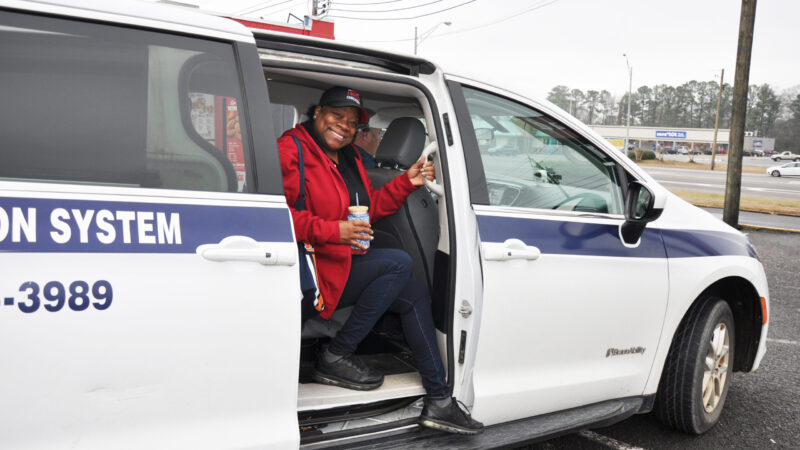On The Line: Considering Faith

This time of year prompts many people to reflect on the role of spirituality in their lives. From the commercialization of religious holidays to separation of church and state, talk about religion can elicit strong responses. Tonight at 6:30 on WBHM we discuss all this and more during On The Line: Considering Faith.
Join the conversation by calling 1-800-444-9246 during the program or emailing your comment or question to [email protected].

Reverend Deacon Carolyn J. Foster was born, raised and educated in Birmingham. She grew up in the African-American neighborhood of Smithfield, located in west Birmingham and known as Dynamite Hill during the turbulent 60’s; a reference to numerous bombings of the homes of civic rights activists in the area. The memories and experiences of that time shaped and guided her to work in areas dealing with social justice issues in her adult life.
Her work includes UAB Center for Aging, Greater Birmingham Habitat for Humanity, Jefferson County AIDS in Minorities, and The Firehouse Shelter for Homeless Men. She became Executive Director of the Alabama Faith Council in April 2008, a statewide coalition of faith leaders and lay leaders who work together on social justice issues facing the people of Alabama, whose needs are the greatest and whose resources in life are the least.
She has served on the Board of Directors of Greater Birmingham Ministries since 1991, having served as Vice President, Secretary, Member of the Faith in Community workgroup and she currently chairs GBM’s Constitution Reform Task Force, in an effort to rewrite Alabama’s 1901 Constitution. She is also secretary of the Alabama’s Citizens for Constitutional Reform (ACCR).
She was ordained in the Episcopal tradition in November 2002 and serves St. Mark’s Episcopal Church. Rev. Foster is co-chair the Episcopal Diocese’s Commission on Race Relations and is a Certified Anti-Racism Trainer for the Episcopal Church.

Rabbi Hausman-Weiss is the Director of Adult Jewish Educational Outreach at Temple Emanu-El . Hausman-Weiss joined the congregation in 1999 to enrich adult learning opportunities. He has spent the last seven years teaching and engaging both young and old alike in a variety of settings including special adult programs, religious schools and Jewish camps. Ordained at the Hebrew Union College, Rabbi Hausman-Weiss received two Masters degrees including Jewish Education and Hebrew Letters. A native of Los Angeles, he and his wife, Natalie, are the parents of two sons, Abraham and Samuel.

Imam Raed Awad is with the Birmingham Islamic Society. BIS is a nonprofit religious organization established to facilitate the Muslims of the Birmingham metropolitan area for the worship of Allah.
~ December 8, 2008
Top House Dem wants Justice Department to explain missing Trump-related Epstein files
After NPR reporting revealed dozens of pages of Epstein files related to President Trump appear to be missing from the public record, a top House Democrat wants to know why.
ICE won’t be at polling places this year, a Trump DHS official promises
In a call with top state voting officials, a Department of Homeland Security official stated unequivocally that immigration agents would not be patrolling polling places during this year's midterms.
Surgeon general nominee Means questioned about vaccines, birth control and financial conflicts
During a confirmation hearing, senators asked Dr. Casey Means about her current positions and her past statements on a range of public health issues.
Kalshi reveals insider trading case against editor for MrBeast
With prediction markets booming, so have concerns about insider trading. Now, Kalshi has disclosed its first public actions against accounts suspected of trading on confidential information.
Greetings from Jordan’s Wadi Rum desert, where patches of green emerge after winter rains
Wadi Rum's otherworldly landscape is where Star Wars movies and The Martian were filmed. In late winter, plants emerge in this desert — but some are toxic to camels, so their herders must protect them.
Lack of transportation keeps many Alabamians from working. Rural public transit programs are trying to help
While lack of transportation is a major employment barrier in Alabama, few people take public transit to work. That dynamic is even more pronounced in rural areas.







